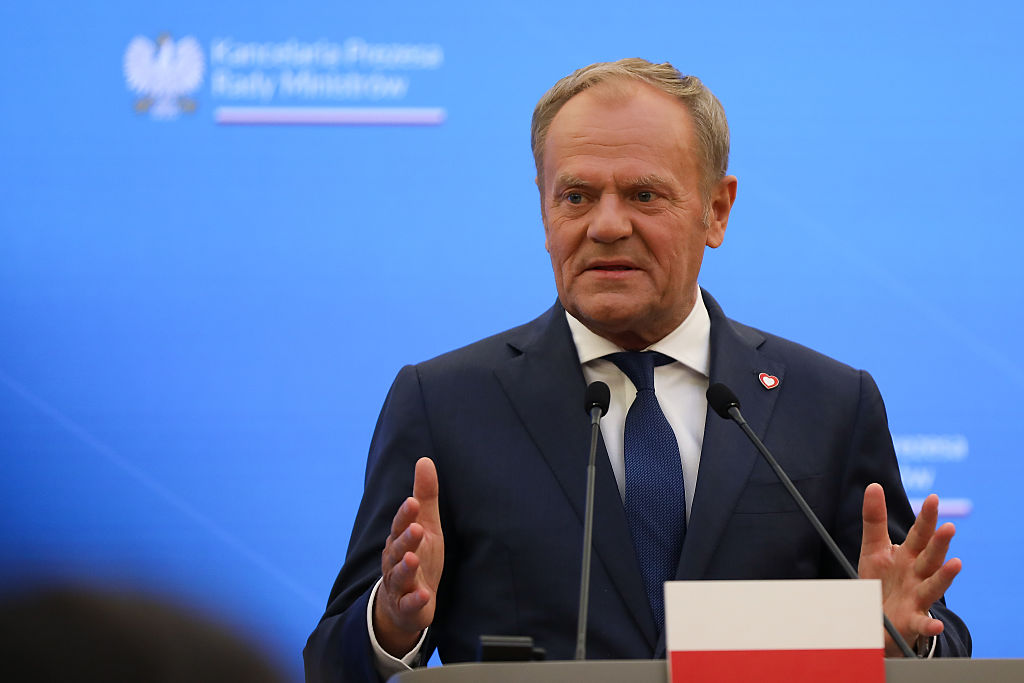Warsaw – Polish Prime Minister Donald Tusk unveiled a reshuffled cabinet on Wednesday, appointing Jolanta Sobierańska-Grenda, a seasoned healthcare executive and former head of Pomorskie Hospitals, as the new Minister of Health. This move is seen as signalling a technocratic shift in health policy.
Tusk thanked outgoing minister Izabela Leszczyna for her leadership at the Ministry of Health, which she had led since December 2023. He noted that the ministry now requires “purely substantive work” and pledged that “the entire ministry will be depoliticised.”
Tusk added that the new health leadership will oversee Polish hospitals and other entities in the sector, focusing fully on practical, results-driven reform at the ground level. “The sole objective will be to improve the situation of patients. And I will say this very bluntly: not the improvement of doctors’ situation, but the improvement of patients’ situation,” the prime minister said.
Tusk emphasised that all outgoing ministers deserved recognition and thanks for their service, and that he viewed their work positively.
“Minister Leszczyna has done a truly remarkable job,” he said, pointing in particular to her success in unblocking funds from the National Recovery Plan (KPO). “We managed to organise billions of złoty in support for the Polish healthcare system, quickly and painlessly, through various instruments and European funds,” he added.
Early priorities
One of the main challenges will be reforming the healthcare system, particularly hospitals, with the consolidation of medical facilities as the cornerstone of reforms.
“There is an ongoing debate within the medical community on this topic, and systemic conditions favour consolidation,” Sobierańska-Grenda said in an interview for the health portal Focus o Zdrowiu, pointing to examples from across Europe where hospitals function as integrated networks.
“Patients don’t care what legal form a medical facility has. What matters is whether they can receive services financed by the National Health Fund, the quality of those services, the expertise of the specialists, the state of infrastructure and whether modern technologies are in use,” she explained.
At the same time, the minister emphasised that consolidation must be manageable and requires locally developed compromises. Good communication with staff and patients will also be key to the success of any reform.
Financial matters and the remuneration of healthcare professionals are another area the new Minister of Health will need to address.
During a discussion at the Health Challenges Congress, she acknowledged that although the salary reform introduced several years ago has had benefits, particularly for nurses, the system as a whole needs restructuring.
She noted that public discussions about salaries too often focus only on tax levels, while the responsibilities borne by healthcare professionals are equally important.
Tusk also stated that he expects rapid progress in the area of digitalisation. Although the introduction of e-registration was one of the government’s flagship promises for its first 100 days, the system has yet to be implemented.
“Everyone is beginning to understand that a huge opportunity for Polish patients lies in comprehensive digitalisation of our entire healthcare service,” Tusk said, adding that the government’s goal is to drastically accelerate work in this area.
Lawyer, not doctor
Jolanta Sobierańska-Grenda is the first hospital director and non-medical doctor to head the Ministry of Health in Poland. She is a trained lawyer and legal advisor, having graduated from the Faculty of Law and Administration at the University of Gdańsk.
Previously, she worked in local government, initially at the county level as Secretary of Malbork County and later at the regional level as Director of the Health Department of the Marshal’s Office of the Pomeranian Voivodeship.
She brings a track record of hospital restructuring and consolidation to the role, having overseen the transformation of regional facilities into commercially viable entities. Her leadership at Pomorskie Hospitals included mergers not only within single ownership structures but also with the Clinical Centre in Gdańsk, affiliated with the local medical university.
Sobierańska-Grenda holds an MBA in healthcare management and lectures on executive programmes for medical professionals at institutions including the Leon Koźmiński Academy and Łazarski University in Warsaw. In 2024, she earned a doctorate from the University of Gdańsk, focusing on hospital efficiency.
Her research demonstrated that operating four separate hospitals was financially unsustainable compared to a unified model such as the Pomeranian Hospitals group. The study also identified scalable processes that could be implemented nationally.
“Once, ‘hospital restructuring’ was my hobby,” Sobierańska-Grenda said during her acceptance speech for the Woman of the Health Market Award 2025. “I did it to show that what seems impossible, I can manage to do,” she added.
[Edited by Vasiliki Angouridi, Brian Maguire]
